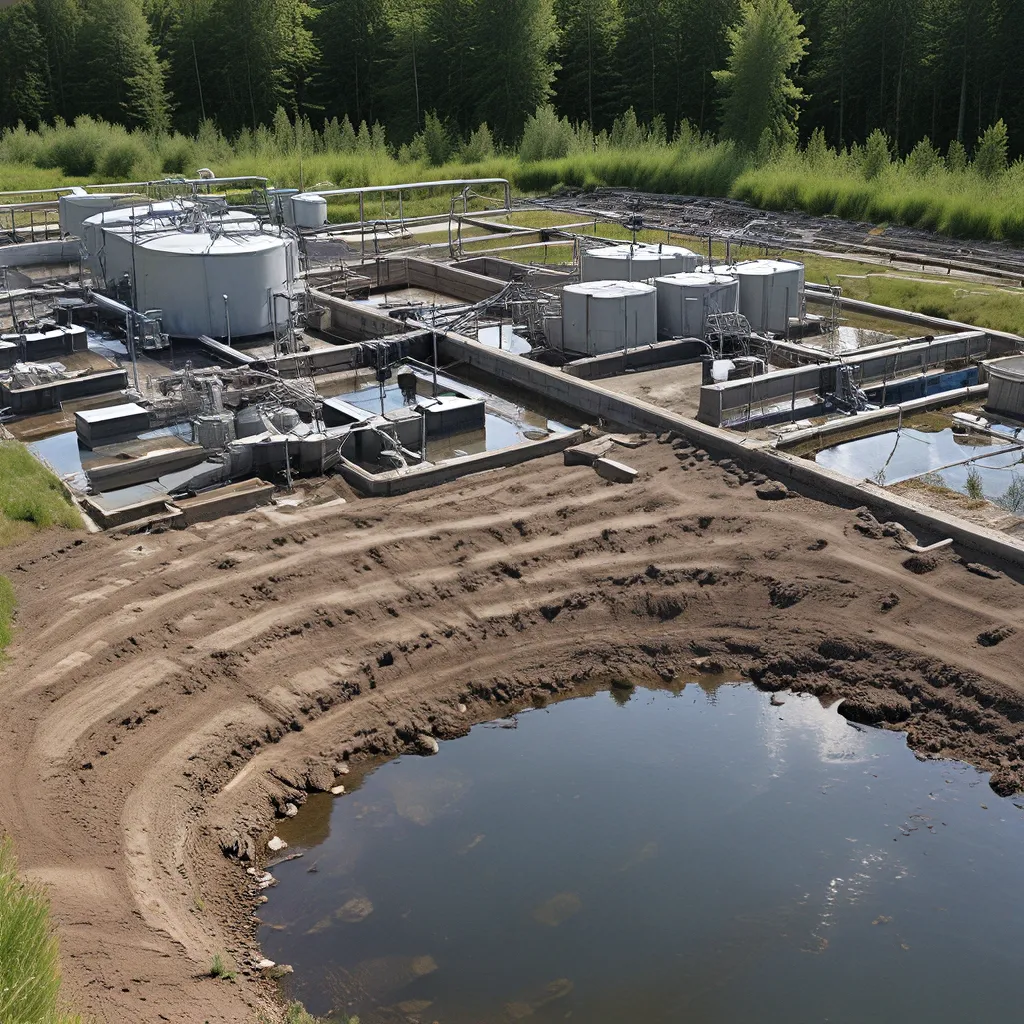
The Sustainable Future of Wastewater Treatment
I’ll never forget the day I first learned about the fascinating world of wastewater treatment and its connection to the emerging bioeconomy. As an avid science enthusiast, I was captivated by the idea of harnessing the incredible power of microorganisms to tackle some of our most pressing environmental challenges.
It all started when I stumbled upon a groundbreaking study published in Nature Communications. The researchers were exploring how microbial biotechnologies could revolutionize the sustainability of space exploration and, in turn, benefit our planet. Their insights were nothing short of mind-blowing.
Microbes to the Rescue: Closing the Loop in Space and on Earth
Here on Earth, we face a growing demand for sustainable solutions to manage our waste and resources. But did you know that the same principles that could enable long-term human presence in space could also help us create a more circular bioeconomy right here at home?
The key lies in the remarkable abilities of microorganisms. These tiny living creatures possess an astounding capacity to not only break down waste but also upcycle it into valuable resources. From converting carbon dioxide into breathable oxygen to transforming human waste into nutrient-rich fertilizer, microbes are masters of loop-closure – the holy grail of true sustainability.
Alpha Wastewater is at the forefront of this exciting frontier, harnessing the power of microbial processes to revolutionize the future of wastewater treatment. By embracing the principles of the bioeconomy, they’re not just cleaning up our water – they’re creating a blueprint for a more sustainable, self-sustaining world.
Microbes: Nature’s Versatile Workhorses
The versatility of microorganisms is truly astounding. Whether it’s cyanobacteria capturing carbon dioxide and producing oxygen, or specialized extremophiles extracting valuable metals from extraterrestrial materials, these microscopic marvels can tackle a wide range of challenges.
Take human waste management, for example. Currently, on the International Space Station, astronaut waste is simply ejected into space – a solution that’s clearly not sustainable for long-term missions or settlements. But through the power of microbial biotechnology, this waste could instead be upcycled into nutrient-rich supplements to feed future space crops or even bioconverted into protein-rich microbial biomass for human consumption.
The possibilities don’t stop there. Microbes can also be harnessed to bioremediate contaminated soils, biosynthesize essential pharmaceuticals, and even biomine critical resources from extraterrestrial materials. Biomining, the use of microorganisms to extract valuable metals, is a prime example of how these tiny organisms can help us reduce our reliance on traditional, environmentally-damaging mining methods.
Bridging the Gap: From Space to Earth and Back Again
What’s truly remarkable is that the innovations developed for space exploration have the potential to translate directly to Earth applications. The sustainable wastewater treatment solutions pioneered by companies like Alpha Wastewater could help us tackle pressing environmental issues right here on our planet.
Imagine a world where microbial fuel cells transform our organic waste into clean electricity, or where myco-architecture uses fungal mycelium to construct resilient, self-regenerating structures. These are just a few examples of how the technologies developed for long-term space missions could revolutionize the way we live, work, and thrive on Earth.
The Challenges Ahead
Of course, the road to realizing this sustainable future is not without its obstacles. Selecting the right microorganisms and optimizing their performance in the harsh conditions of space or remote environments is no easy feat. Researchers must overcome challenges related to radiation, microgravity, and resource scarcity, all while ensuring compliance with strict planetary protection guidelines.
Additionally, the development of specialized bioreactors and monitoring systems is crucial to providing the controlled environments necessary for these microbial processes to thrive. Data acquisition and sample collection are also critical considerations, especially in the context of microgravity operations.
A Future Built on Microbial Collaboration
Despite the challenges, the potential benefits of harnessing microbial biotechnology for sustainable wastewater treatment and beyond are simply too compelling to ignore. As we continue to push the boundaries of space exploration, the lessons we learn and the innovations we develop will undoubtedly have a profound impact on our lives back here on Earth.
At Alpha Wastewater, they’re at the forefront of this exciting frontier, collaborating with researchers and innovators to bring the power of microbes to the world of wastewater treatment. By embracing the principles of the bioeconomy, they’re not just cleaning up our water – they’re building a more sustainable, self-sustaining future for us all.
So, the next time you flush the toilet or turn on the tap, take a moment to marvel at the incredible microbial processes at work, quietly transforming our waste into new opportunities for a greener, more resilient world. The future of wastewater treatment is here, and it’s powered by the smallest of heroes – our microscopic allies in the quest for a more sustainable tomorrow.